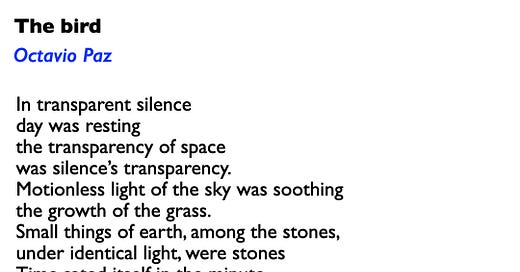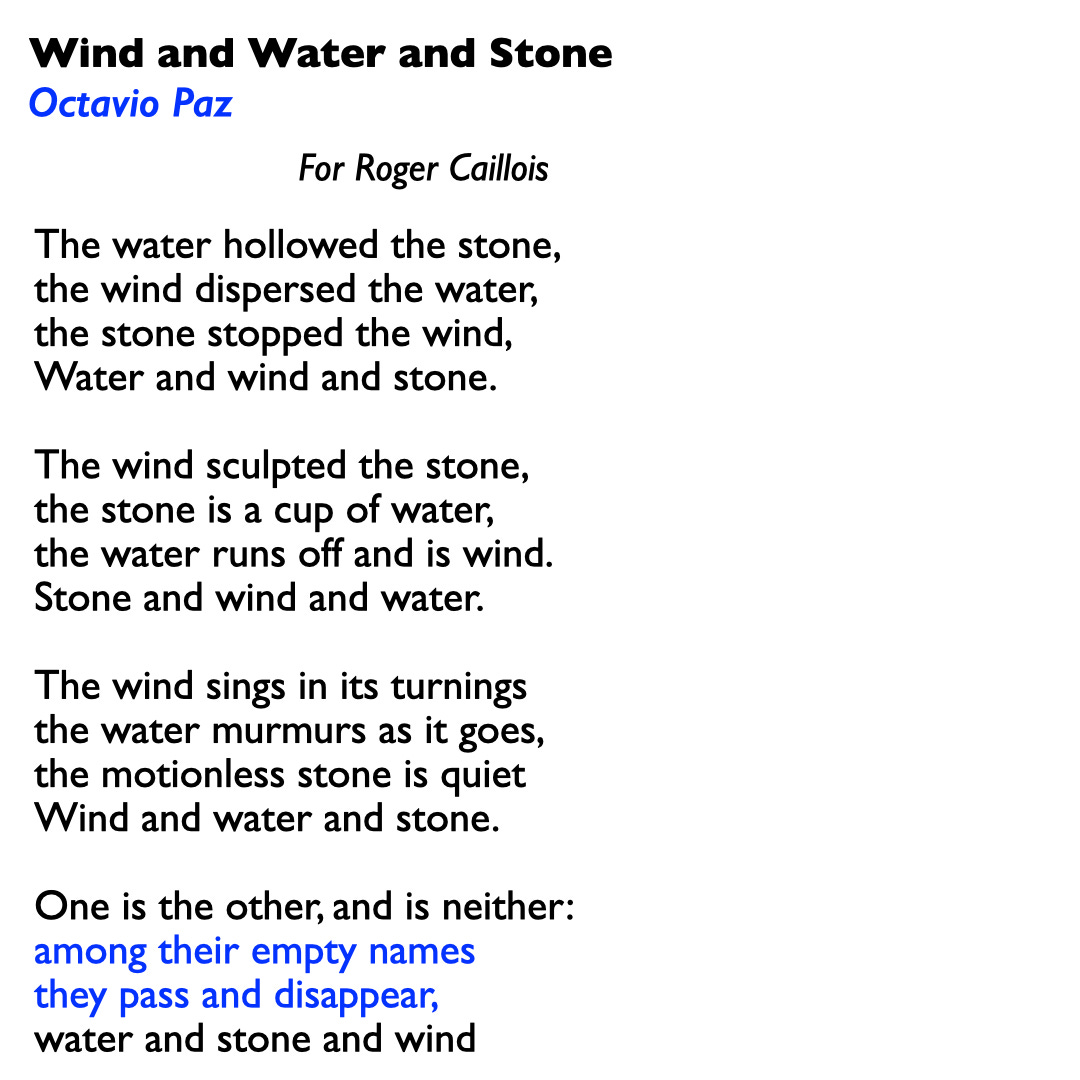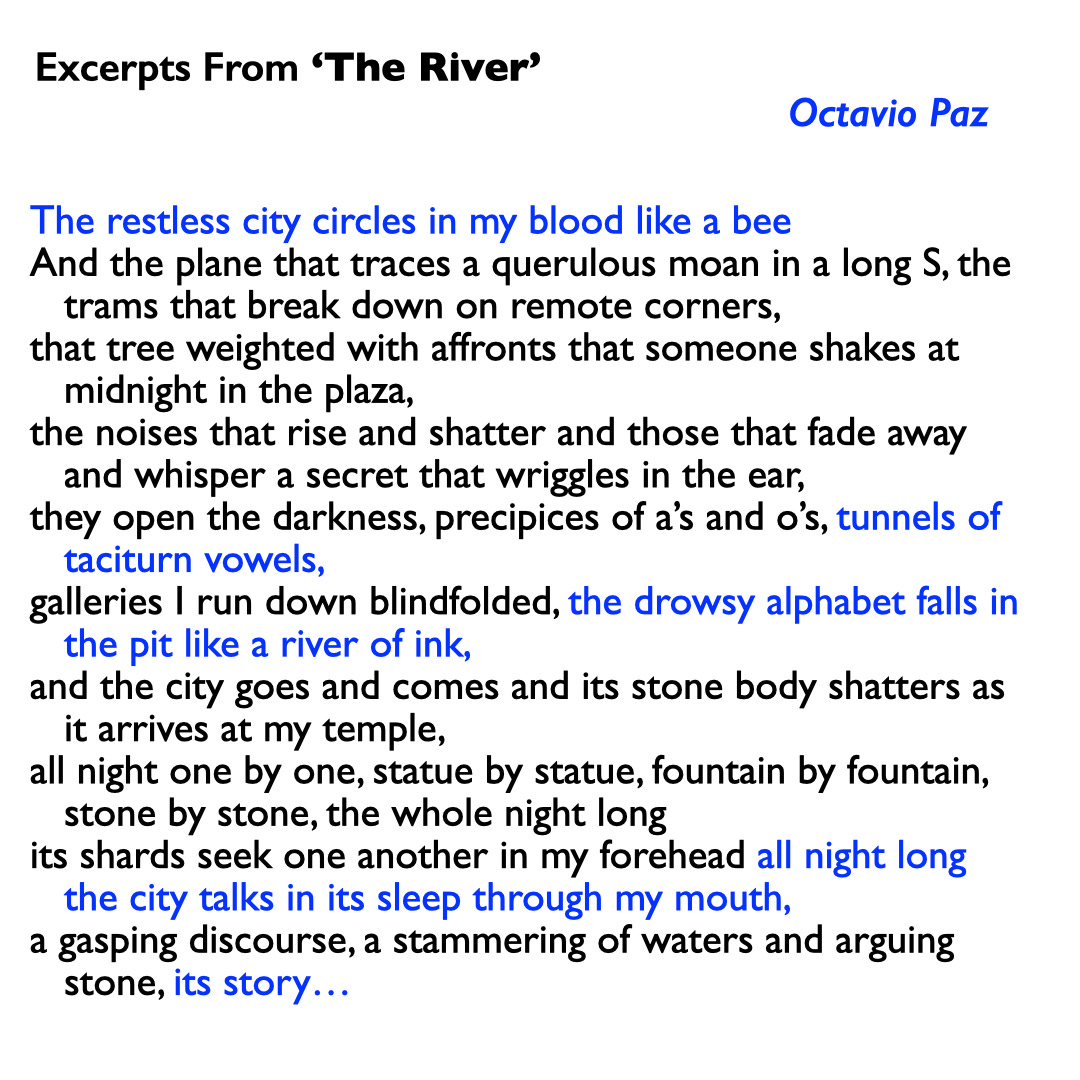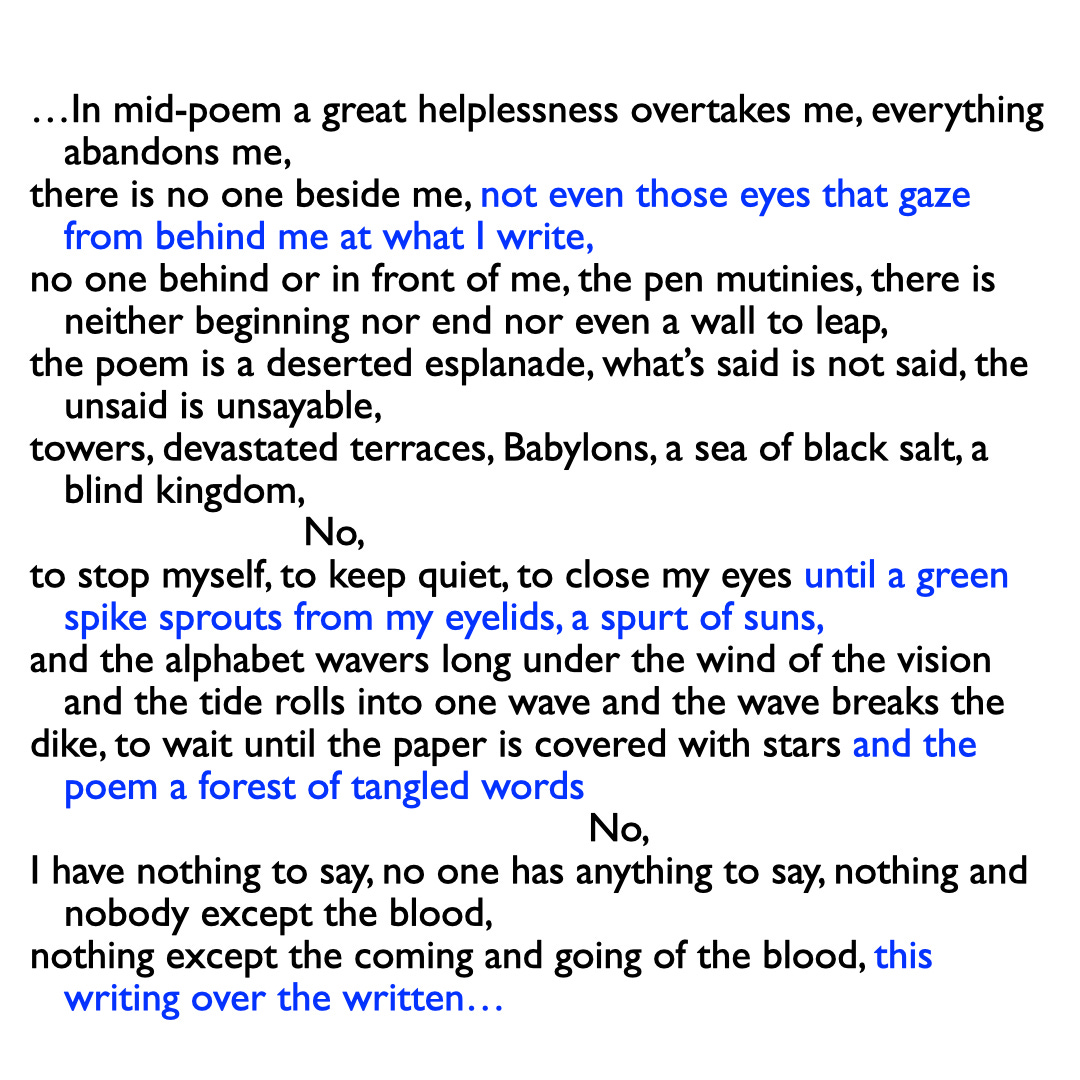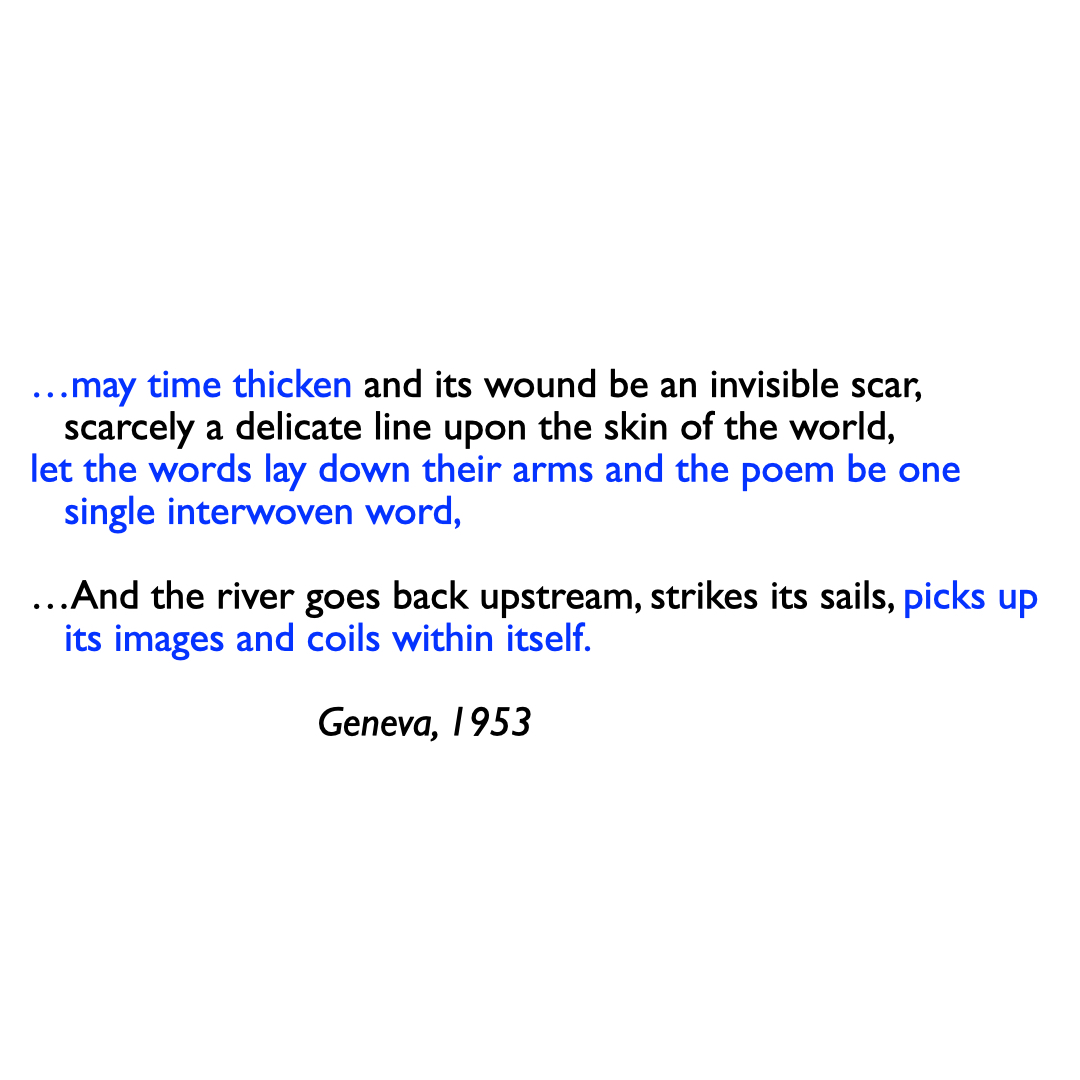4 poems - 'The bird', 'Two bodies', 'The River' (excerpts), 'Wind and Water and Stone'
Octavio Paz
My Android based Redmi phone told me this morning that it was “World Literature Day”. I did not know there was such a thing, and perhaps there isn’t. Either way, I feel like this is a happy coincidence. For a couple of days now I have been trying to find the time to share with you the work of the Mexican poet Octavio Paz, an inspiration in my own writing, and a legend who is often referred to as a truly “international” poet. A real heavyweight of “World Literature”. While some of his most well received work references his culture, and his own place within it, there is an “opening up” to diverse geographies that dance in resonating images that are in a constant state of arrival and return - from the self and the city. I am enthralled by this trope in his writing. It is a language of repetition, and with words he draws concentric cirles through the self and the outside world, each whorl a different luminiscent shade. Sample this early work (drawn from his earliest collection of poetry written in the period - 1935-1944):
Ah that last line! It gets me every time. But look how he uses repetition. Every time a word or phrase is repeated, its translucent windows let in light of a different shade. Notice how, also in the last stanza (I just found out through the glorious public profile of the poet Chen Chen that the word stanza comes from the Italian for ‘room’, but that, for another time), the tableux catapults into the ephemeral plane of thought, and conjecture. The bird turns into an arrow turns into death turns into an eye turns into an observer - and the last, most, important transformation - turns into the collective, the we, the reader and the persona. He does all this in the space of a line. Now look at this one:
I’m sure there are poets who find this kind of metaphor mixing a bit problematic. I, however, am doing a lazy backstroke through the currents of his sparkling images that surge with the insidiousness of memory. There is a shade of this theme of transformation, sudden shift, and cyclicality in a well known poem that was not anthologised initially. This poem was written in his later years - 1976-1980:
And NOW, for the clincher. This poem is my favourite Octavio Paz poem. It is from a collection that houses poems from the period 1948-1957. Incidentally, Paz visited our country, as Ambassador of Mexico to India. He is said to have written a lot over here, and many of his poems are set here. I am yet to have explored them.
But getting back, I am only sharing excerpts of the dizzying masterpiece that is ‘The River’. It is too long for this space, but I am happy to share images of the entire poem to anybody who’d like to read it in its entirety. It is here that we see shades of the ‘city poet’, the ethnographer and philosopher, the self-reflexive master thief (You will find shades of Rimbaud’s synesthetic colourful ‘vowels’). Paz’s ‘animal soup’ is swimming with time, language, and of course the very act of writing. Between imagination and reality, Paz threads the needle of his own searching, wandering mind, and then proceeds to create, at once, a tapestry that looks peripherally at a real place, real images, real events, but with the gaze of a surrealist. He invokes the thing only to deconstruct it, before returning it to its place in the larger arrangement of things.
I think I will take years before I am able to grasp even a fraction of the richness of Paz’s work. But sharing this with you here, I realise, that the act of reading his poetry best exemplifies something I like telling anyone who tells me that they don’t “get” poetry, or “understand” - Don’t try to. Just let the language wash over you, as if you are lying down at the beach on a Sunday afternoon. There is no great mystery to be unlocked. The sound of the ocean in a shell is enough to open the door of the world.
Subscribe to Poetly to read the work of more beautiful poets like Paz. I will try my best to provide context. Promise :)

